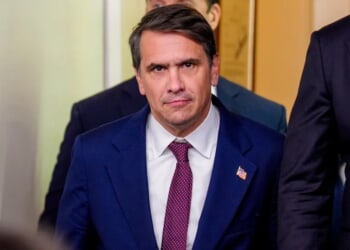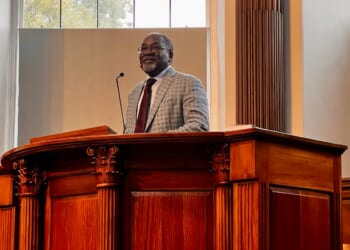Cyril Davydenko is a research assistant at the think tank Bright Blue.
Shortly after Trump’s re-election some analysts celebrated the right’s rejection of the messianic neo-conservatism of the Bush era in favour of an ‘America first’ approach. Yet Trump’s decisive rhetoric on Venezuela shows that neo-conservatism can co-exist with MAGA, as long as it returns to its original purpose of championing pragmatic, yet pro-active foreign policy.
Indeed, the history and the substance of neo-conservative though spans beyond zealous desire to spread democracy to every corner of the world. In fact, neo-conservatism as an ideology was founded as a rejection of Liberal Internationalism of Jimmy Carter.
Jeane Kirkpatrick epitomised the, now forgotten, ruthless spirit of early ‘neo-cons’. In her famous essay “Dictatorships and Double Standards” she argued that America must not shy away from co-operating with authoritarian leaders when they clearly wished to align themselves with the West.
This is not to say that she did not support democratisation, of-course she recognised that autocracies are oppressive and undesirable, however at the same time Kirkpatrick warned against the quixotic demands for democratisation and liberalisation that American Liberals imposed on autocratic leaders. In the cases of Iran and Nicaragua, she noted that attempts at democratization inadvertently installed anti-Western regimes, with the consequences of Carter’s missteps in Iran still felt today.
The essay was likened by Ronald Reagan, who soon invited her to serve in his cabinet and appointed her the US ambassador to the UN. Of course, Kirkpatrick’s ideas were not exactly novel, as the already USA had a long history of co-operating with less than savoury leaders throughout the 19th and 20th centuries. However, in the 1970s Kirkpatrick’s neo-conservatism amounted to a potent attack on liberal idealism.
Despite the initial success, Kirkpatrick’s flavour of neo-conservatism was soon diluted by At the start of the 21st the GOP allowed its own breed of idealism to creep into its foreign policy. George W Bush, spurred on his Deputy Secretary of Defence, Paul Wolfowitz, embarked on disastrous attempts to ‘spread freedom and democracy’ to Iraq and Afghanistan. Ironically, these invasions aligned the later neo-conservatives more closely with the liberals of the 1970s than with their own forebears – differing only in the means by which they used to ‘democratise’ the world.
Of course, it would be too simplistic to argue that idealism was the only reason behind these ventures. Undoubtedly, the desire to avenge the attacks of 11 September played a major role. However, it is also clear that these military campaigns were underpinned by a genuine belief that it is Americas’ responsibility to strike down foreign despots and instal secular democratic government in their place.
In 2025, one does not have to be a hippie leftist to see that those interventions were misguided, and the American public has little appetite for such messianic ventures. The old platitudes of ‘defending democracy abroad’ now ring hollow for the average Republican. JD Vance perfectly encapsulated this ‘vibe shift’ when he said that “I don’t really care what happens to Ukraine, one way or the other”. Indeed, how can anyone expect the public to support committing to billions in foreign aid to save the ‘rules-based order’ when they are facing numerous economic and social problems at home.
It might be tempting to attribute isolationist sentiments within the Republican base to a lack of awareness, yet such attitudes risk rendering neo-conservatism increasingly irrelevant in global affairs.
In the end, only by justifying every foreign policy strategy by appealing to the national interests will neo-conservatives stand a chance of convincing Trump and his flock to support certain necessary interventions. At the same time this would not constitute a rejection of moral responsibility, but rather a mature recognition of the realities of geopolitics and the complexities of alliance-building.









![Florida Officer Shot Twice in the Face During Service Call; Suspect Killed [WATCH]](https://www.right2024.com/wp-content/uploads/2025/12/Inmate-Escapes-Atlanta-Hospital-After-Suicide-Attempt-Steals-SUV-Handgun-350x250.jpg)

![Keith Ellison Caught Promising to Fight State Agencies for Somali Fraudsters [WATCH]](https://www.right2024.com/wp-content/uploads/2026/01/Keith-Ellison-Caught-Promising-to-Fight-State-Agencies-for-Somali-350x250.jpg)





